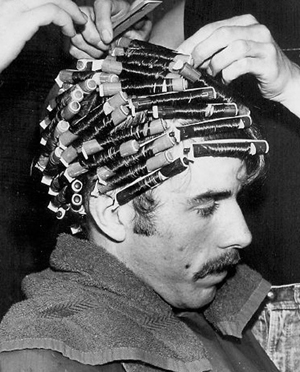 |
| Andressa Maciel |
Black and brown Brazilians make up more than half Brazil’s population, the article says. Their dark-hued ancestors were brought to Brazil as slaves from Africa in past centuries. Upon their arrival in the New World, their heads were promptly shaved. Their situation undermined, the article tells us,
... any sense of ethnic belonging that those people could have carried in their relationship with their hair," said Amanda Braga, who wrote a book about the history of black beauty in Brazil.
Fast forward to today. We read in the Post article that the brasileira Aline Bibiano was bullied as a child by her white classmates for her "bad" hair. Today, ten-year-old Ana Luiza, the daughter of Aparecida Jesus, likewise gets bullied in school for not conforming to white standards of female beauty in Brazil.
My concern here has to do with the bullying aspect of it. This article makes me realize that bullying is what happens when one group, call them the "power elite," seeks to disparage another group for being (a) "different" and (b) not part of the power elite.
I was on the receiving end of bullying when I was in junior high school. What was "different" about me was simply that I walked to and from school with a bunch of girls. It was supposedly not something any self-respecting boy of 12 or 13 was supposed to do.
To me today that seems a very minor difference, certainly not one that is as instantly obvious as having dark skin or kinky hair in a society in which white coloration or hair textures characterize the power elite. But we humans do seem to be ultra-sensitive to the ways in which others don't conform to our supposed norms.
*****
| The Beatles |
Just a few years after I got bullied in 1959 or 1960 as a seventh or eighth grader, along came the Beatles. John Lennon, Paul McCartney, George Harrison, and Ringo Starr defied the norms of their day by growing their hair long. Strange as it may seem now, they got accused of effeminacy. Yet within a year or so, young American white men were likewise growing their hair long.
Black men such as Jimi Hendrix followed suit:
 |
| Jimi Hendrix |
As did black women such as Diana Ross:
 |
| Diana Ross |
By the 1970s, numerous young whites (female and male) were getting permanents that yielded an Afro look.
The old stigmas were gone. It had not only become OK for men to grow long hair, it was even OK for white girls and boys to sport curly or kinky hair. A number of of our cultural norms had been (at least temporarily) repealed.
*****
What hadn't been repealed, though, was our human tendency to impose cultural norms in the first place, and to bully those who don't conform. Apparently, though, the norms that were still in force in Brazil in the 1960s and '70s concerning race, color, and hair type didn't change. This is why letting one's hair grow out naturally curly or kinky still carries a political message in today's Brazil.
I don't think we can change human nature. But we can alter how we express our intrinsic human nature:
- We can cease to be slaves to our worst, most inhumane tendencies.
- We can teach our children to celebrate, rather than malign, our differences.
- We can stop bullying one another.

No comments:
Post a Comment